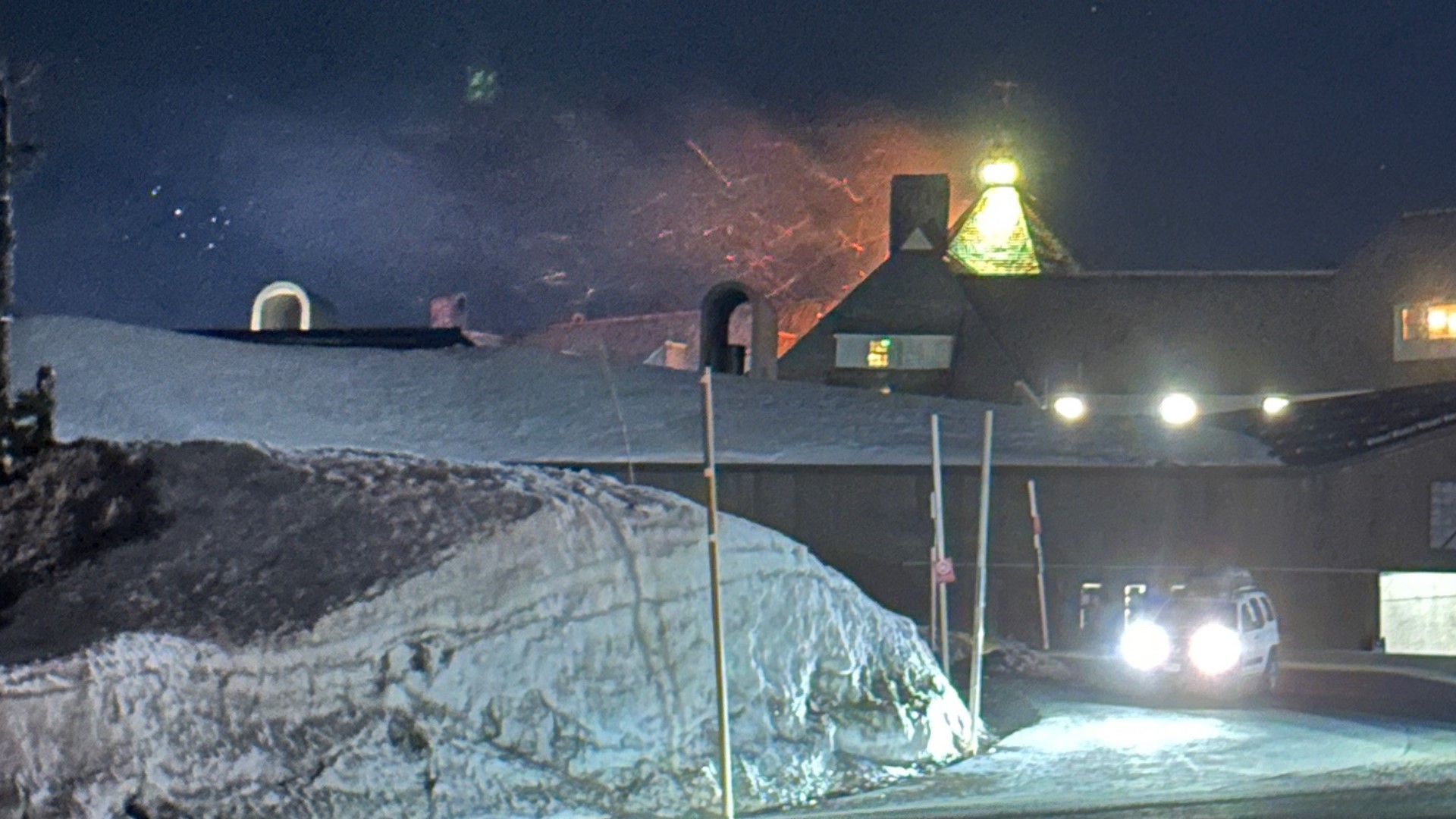Weather warnings are in effect as a heatwave threatens to engulf over 8 million residents across the greater expanse of Seattle and Portland, as well as western Washington and northwestern Oregon. From Saturday to Monday, the mercury is forecasted to touch the high 80s to mid-90s in areas where air conditioning is scarce.
The Pacific Northwest, after enduring a three-month period of temperatures predominantly below average, is now set to confront potentially record-setting heat over the weekend. An intense high-pressure ridge is making its way into the region, signaling a drastic change in weather patterns.
A surge in temperatures is already apparent, with Seattle expecting to reach 80 by Friday and Portland aiming for the high 80s. However, by Sunday and Monday, the mercury could skyrocket 30 to 40 degrees higher than early-week readings, mirroring the sweltering peaks of midsummer.
Fox Weather's meteorologist, Britta Merwin, warns, "Prepare to brave the heat, cool down with refreshing beverages – perhaps lemonade or iced tea. It's time to channel some southern warmth because the Pacific Northwest is about to get a real taste of southern heat."
The National Weather Service cautions about the significant risk of heat-related maladies in the region's lowlands and foothills for individuals lacking access to effective cooling and sufficient hydration.
Seattle might experience its hottest Mother's Day yet with high temperatures expected in the upper 80s on Sunday, followed by a potential 90-degree high on Monday. If achieved, it would mark only the ninth occasion the city has hit the 90s in May since records began in 1894.
Meanwhile, Portland might witness temperatures up to 95 degrees, potentially tying for the second hottest May day ever recorded. Even California isn't immune, with the Central Valley possibly seeing temperatures close to 100 degrees.
The National Weather Service declared an excessive heat watch for a vast section of Oregon west of the Cascades and southwest Washington. The watch kicks off at noon on Saturday and runs until Monday, May 15 at 8 p.m.
“This marks the onset of 2023’s inaugural heatwave,” says KATU Meteorologist Rhonda Shelby. She adds, “Having several consecutive days of 90-degree weather is an unusual occurrence for May.”
The soaring temperatures, commencing Saturday and likely persisting through Monday, will potentially shatter existing records. Forecasts indicate that Monday will probably witness the peak of this heatwave.
KATU's Dave Salesky confirms, "We're still on track for record-setting highs over the weekend, though the temperatures might be marginally cooler than yesterday's predictions."
Even overnight lows will remain unusually high, with temperatures only dropping to the low 60s on Sunday and Monday morning.
Following a cool, rainy spring, Mother's Day Weekend is set to be blistering. As the inviting warmth of the sun is likely to attract many to the outdoors, it's important to prepare to stay safe. The combination of hot temperatures and chilly, early-season snowmelt could result in dangerous conditions for those seeking relief in rivers, lakes, and creeks. Past incidents have proven this to be a fatal combination.
The Willamette Valley could expect temperatures to start climbing on Friday, reaching the low-to-mid-80s. There's even an outside chance of the mercury hitting the high 90s over the weekend. This forecast applies consistently across all three major urban centers in the valley, but Portland is most likely to cross the 95-degree mark.
While the exact temperature ranges remain uncertain, the odds strongly favor the breaking of local records. Eugene and Salem, which set their May 14 heat records in 1939 at
90 and 91 degrees respectively, may witness these records toppled over the weekend. Portland's record of 91 degrees set in 2014 also stands at risk of being surpassed this Sunday.
Oregon's snowpack was notably above average this past winter. As temperatures climb at higher altitudes, snowmelt will certainly be a factor. However, according to Miles Higa of the National Weather Service in Portland, it's not expected to cause any exceptional river-related issues.
"We will experience snowmelt, but at present, our rivers aren't predicted to reach any crisis point,” Higa said. “Unlike the east side, where they're more susceptible to snowmelt flooding, we may see some issues well into eastern Oregon, but currently, there's only a gradual rise in river stages in western Oregon.”
While the rivers aren't expected to pose a flooding threat, there's a significant safety risk due to the cold water temperatures. Despite the potential record-breaking outdoor heat, rivers like the Santiam, McKenzie, and upper Willamette remain frigid, with temperatures in the low 40s.
This stark contrast can lead to safety concerns as people flock to the waters to cool off. Without appropriate gear, the icy water can shock your system and sweep you away with the current.
The Willamette's mainstem might reach around 50 degrees at the warmest, but it still presents potential dangers. “The risk of cold water is a major concern for us because we witness a few fatalities every year,” Higa said. “Given that we're early in the season, the water's colder.”
Residents should be mindful that acclimatization takes time, and this early season heat surge presents additional hazards like heat-related illnesses and dehydration. For those needing to be outside working, it's advisable to choose cooler parts of the day like early mornings or later evenings. Staying out of direct sunlight and drinking ample water is also crucial during this period.













